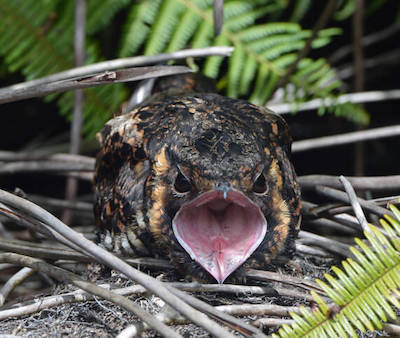
Protecting Your Organization’s Reputation
Prohibited practices aren't just bad for conservation, they can hurt you, too
30 July 2019
Each year, 30 percent of development aid fails to reach its “final destination” due to fraud, corruption and waste. That’s US$40 billion dollars lost!
Globally, the consequences of this loss are profound, but they can also have very personal repercussions.
Imagine this:
Over the past few years, you’ve worked hard to start, and grow, a conservation organization to help protect the river that runs through your community. You’d seen firsthand the damage that overfishing was having on your family and neighbors who depended on the river’s resources for their livelihoods.
Now you and your colleagues are making real progress—educating local people and partnering with the regional government. You’ve even received your first grant from an international organization!
A family emergency takes you away from the office for several weeks. Unbeknownst to you, the organization’s accountant has been having personal money problems so, when you are gone from the office, she forges your signature on several bank withdrawal slips and uses the organization’s money to pay off her personal debts.
When you finally return to the office, you discover what has happened and fire the accountant. But it’s too late; the money is gone.
You have to tell your donor that you’ve been the victim of fraud and a chunk of the money they gave you cannot be accounted for. The donor has no choice but to “blacklist” your organization. Not only will you never receive funds from that donor again, but you are unlikely to receive funds from other donors either.
All that work and passion you put into your organization has been ruined by one desperate person. Once an organization is tainted with allegations of fraud and corruption, it is hard to come back from the reputational stain.
Here are five examples of prohibited practices that can get an organization in hot water:
1. A government official agrees to come to your meeting but only if you pay her a “meeting fee,” so you do.
2. Your colleague’s car is currently broken, so he uses the project truck—which was paid for with donor funds—to run a few personal errands.

3. You hire your brother’s company to build a ranger station without disclosing a potential conflict of interest and without researching to see if there’s another company that is less expensive or is otherwise better suited for the job.
4. Your organization holds a workshop and the project director asks the catering manager to submit an invoice for 50 people even though there were only 45 attendees. The project director pockets the extra cash.
5. Your donor has agreed to pay your travel expenses so that you can attend an out-of-town conference. You stay in a fancy, expensive hotel even though there are less expensive, reputable hotels nearby.
If you are receiving funds from CEPF or another donor organization, you will need to guard against prohibited practices to ensure that you stay in good standing. Donors expect you to be able to account for the money you’ve spent, and they expect that you will spend that money with full integrity and on the activities you’ve agreed on.
Four ways to prevent prohibited practices:
1. Job duties related to the management of funds should be separated between at least two people. If only one person is managing the finances, that makes your organization very susceptible to fraud. Note: The people responsible for managing money should not be related to each other.
2. Before hiring a new employee, take the time to conduct background and reference checks.
3. If there is a potential conflict of interest—meaning that an employee might be inclined to make a decision that is motivated by self-interest or is otherwise not in the organization’s best interest— disclose the conflict and ensure an unbiased, independent review for other viable options.
4. Make sure your employees and beneficiaries know how to report suspicious activity to the Conservation International Ethics Hotline. (Conservation International is one of CEPF's global donor organizations.)
Any organization, no matter how big or small, can have its reputation damaged from prohibited practices such as fraud, corruption and abuse. That’s why you need to put processes in place that help protect your organization, allowing you to continue your important work for years to come.